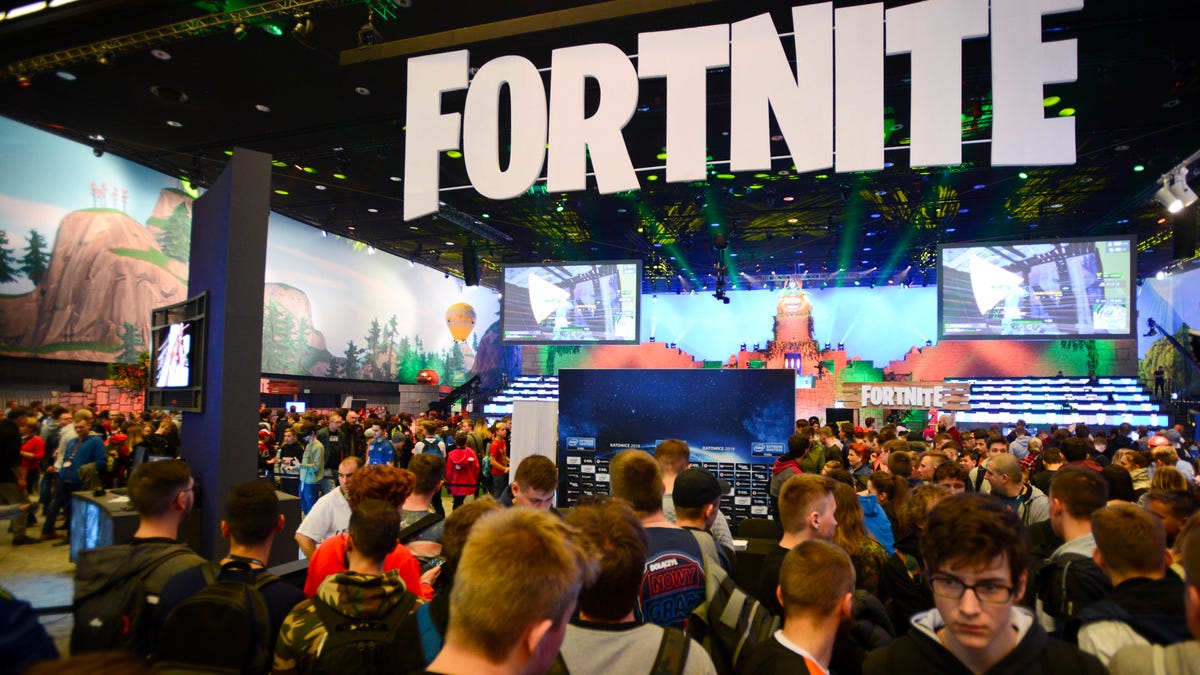Epic's Tim Sweeney isn't worried about game store criticism
The head of Fortnite developer Epic has drawn criticism for his new game store, which competes with Valve's Steam. He sees it as necessary.

Fortnite has become a cultural phenom, helping propel Epic into superstardom within the industry.
For the past few months, gamers have been rapped by intrigue and drama around an otherwise beloved video game developer: Epic Games.
For the past few months, gamers have been criticizing the Fortnite developer for its sharp-elbowed tactics in starting up a game download store late last year. For example, the company struck exclusivity deals, snatching anticipated games like the post-apocalyptic shooting game Metro: Exodus from Valve's competing Steam game store.
To Tim Sweeney, all this drama is worth the change. The CEO of Epic said he's committed to improving the way people pay for games, and the way game companies sell them. One way he's done that is by offering game developers an 88 percent cut on every sale Epic makes of their games -- that's better than the industry standard 70 percent they typically get from other online stores.
Epic's Tim Sweeney isn't backing down from criticism over the launch of his company's online store.
"A lot of these issues are areas where you aren't going to satisfy everybody," he said. "The Epic Game Store exclusives have been controversial among the PC gaming community who much prefers everything be on Steam, yet it's by far the most potent approach to ensuring the success of a new store."
Sweeney's defense of Epic's store comes at a time when the video game industry appears poised for rapid change. Game streaming, once a seeming unproven technology, is now being publicly backed by Sony , Microsoft , Electronic Arts and Google, which announced its Stadia streaming game service on Tuesday.
More games are being developed around connected experiences, like Epic's Fortnite, which pits players against one another in a last-man-standing "battle royale" contest. Gamers are also increasingly buying their titles over the web, such as through online stores like Steam and Epic.
All that has made Sweeney's efforts with Epic's game store more high-profile. But he believes Epic's store, and its efforts to change how much game makers are paid, wouldn't be successful without following industry practices like striking deals for exclusive games.
Below are edited excerpts from our conversation with Sweeney during the Game Developers Conference in San Francisco this week.
Q: You see all the criticism, what do you wish people understood?
Sweeny: I understand it. I've personally unsubscribed from Netflix twice because I've been frustrated with changes in their catalog. So, it's not fun for consumers to see shifts in storefronts that affect the way you buy stuff. We understand that.
But if you want to have a lot more of your hard-earned gaming dollars go to developers to build better games at lower prices, then something like this has to happen.
Do you think people just don't want change?
Sweeny: Do you remember the first three years of Steam? People absolutely hated that Valve forced you to launch their game through what some people called a virus at the time, which was the Steam client.
But Steam led the digital distribution revolution, it was the first across all platforms. You can trace the App Store and Google Play's lineage to what Valve innovated there. And the vehement negativity toward Steam in the early days, that Valve was undermining PC gaming back then, I think it's similar to what we're doing now.
They see this change frustrates them now. But what isn't widely appreciated, except by game developers themselves, is the dramatic improvement in economics here for them that will change the game industry: better games, lower prices, more reinvestment and a more efficient economy overall.
I feel like the ends are more than worth the means.
Is there anything you would do differently?
Sweeny: I wish there were a more popular way to do this, but there are no surprises here. We're determined to do what is necessary for this transformation.

